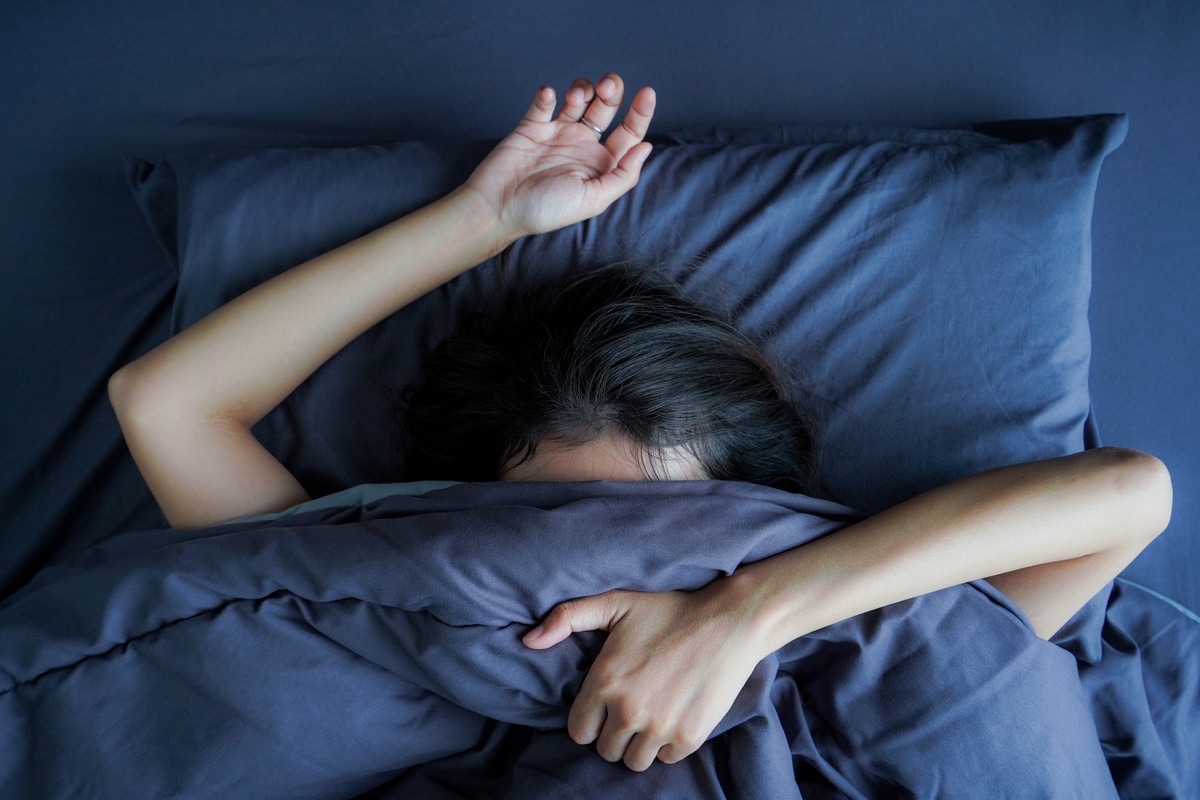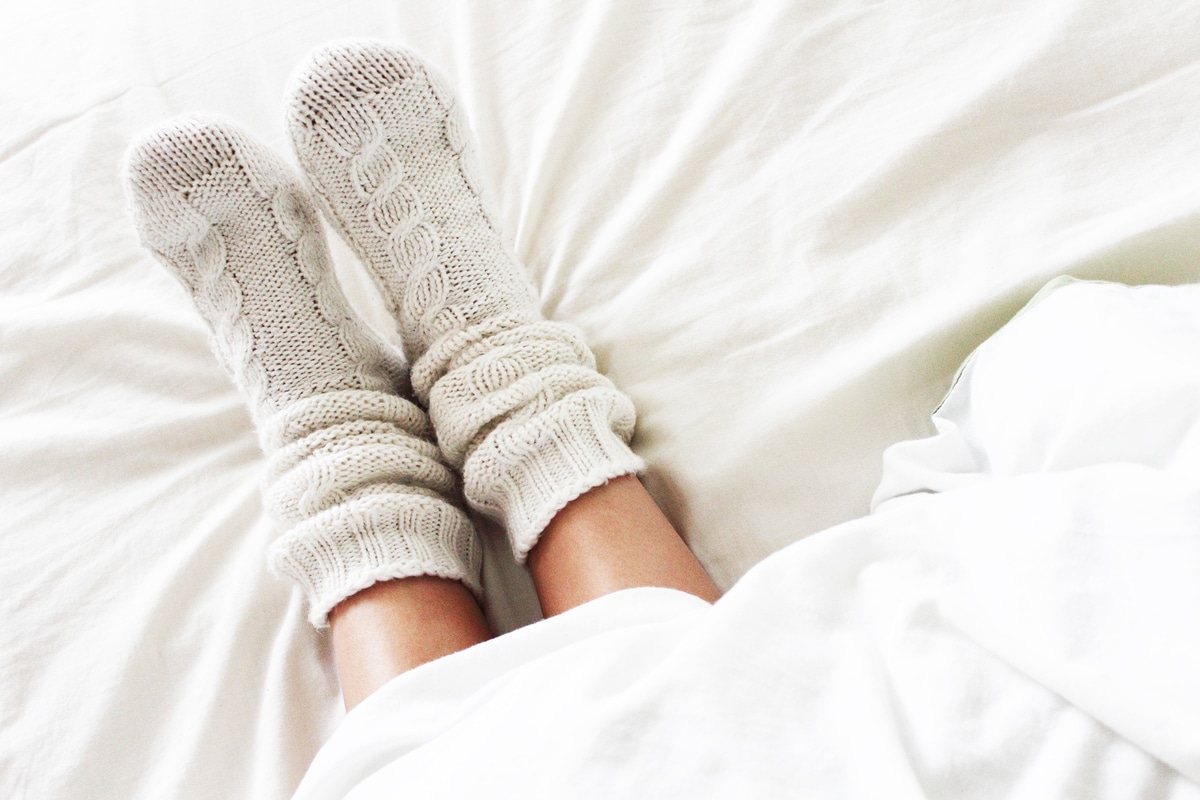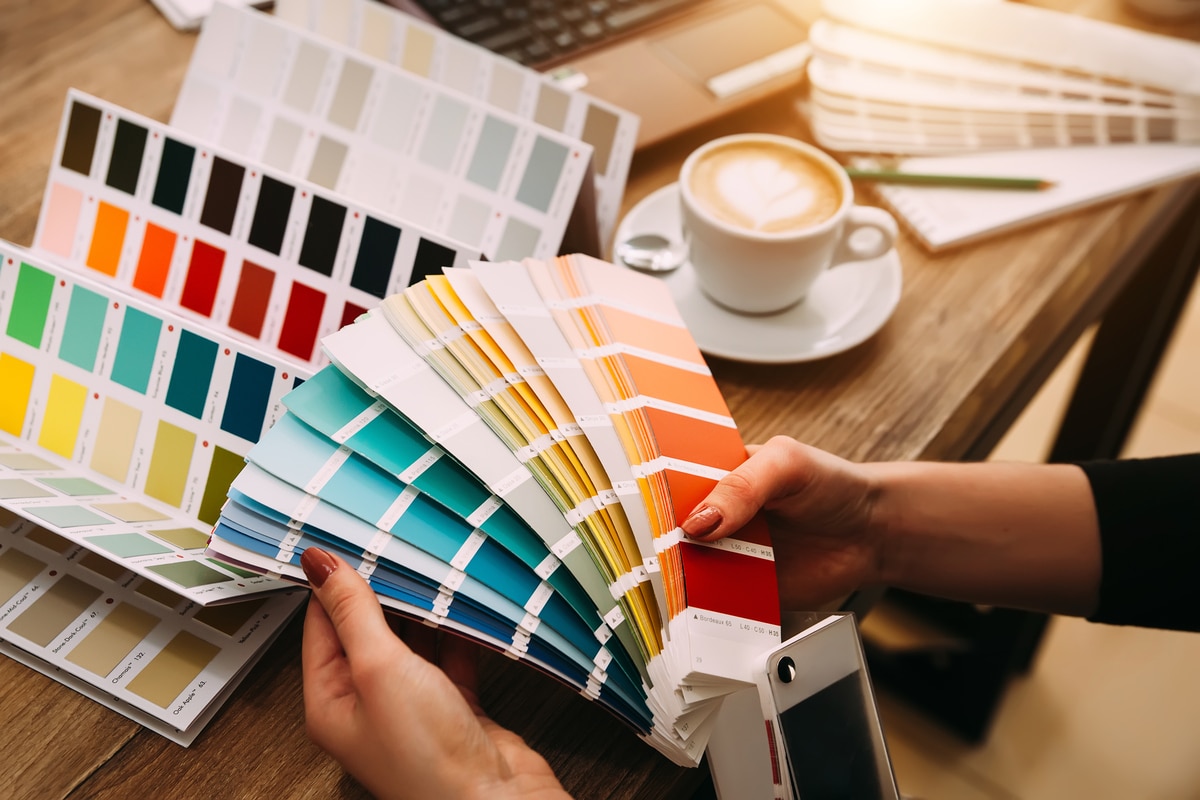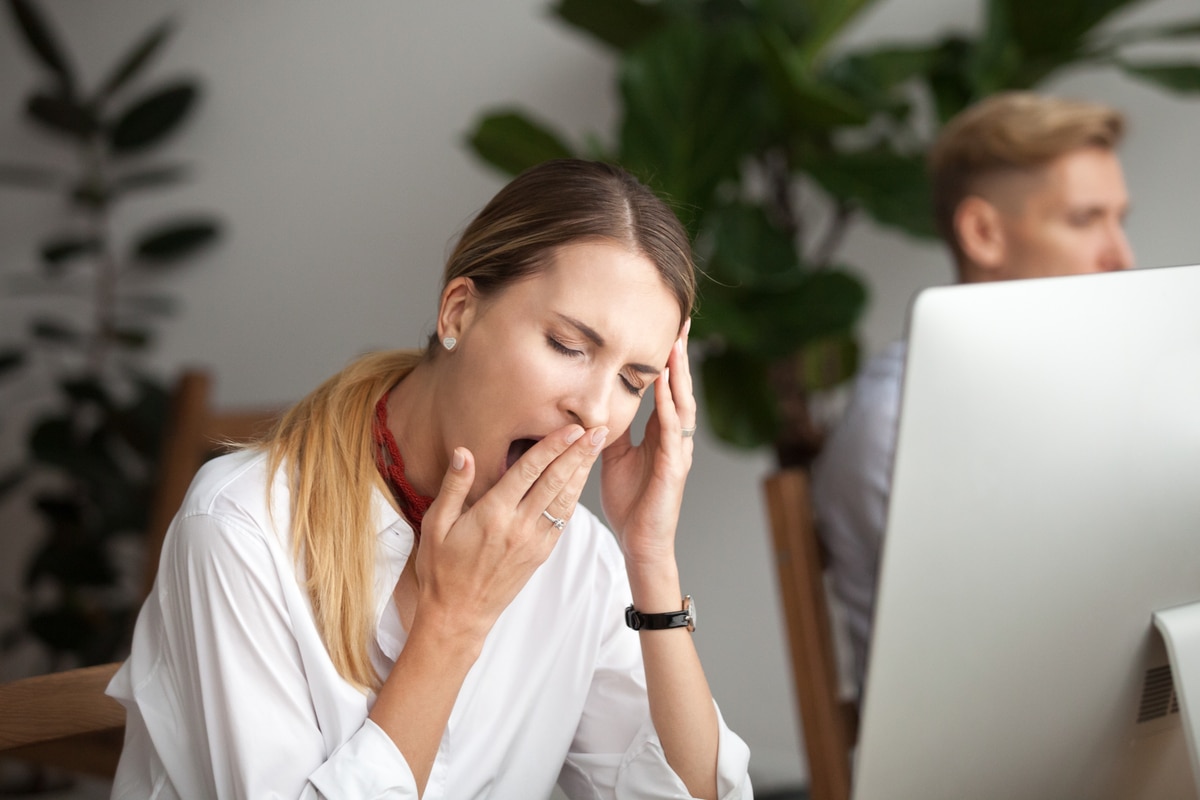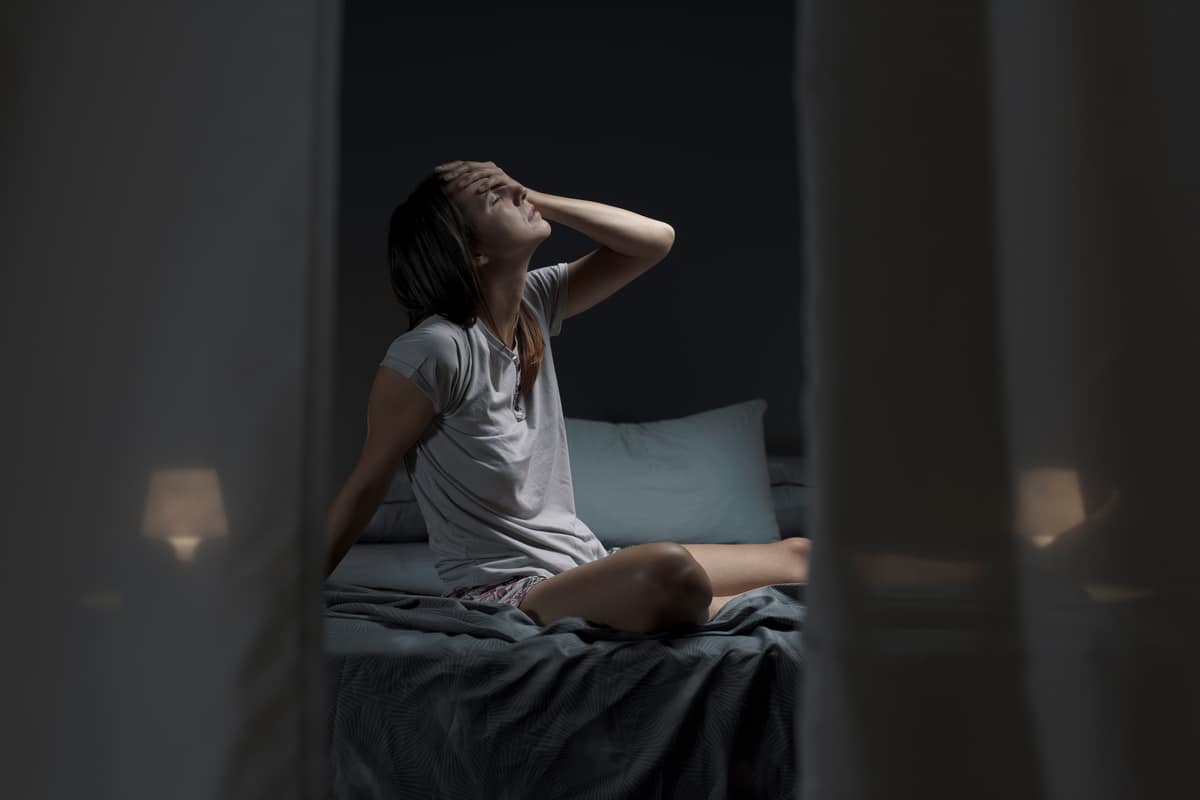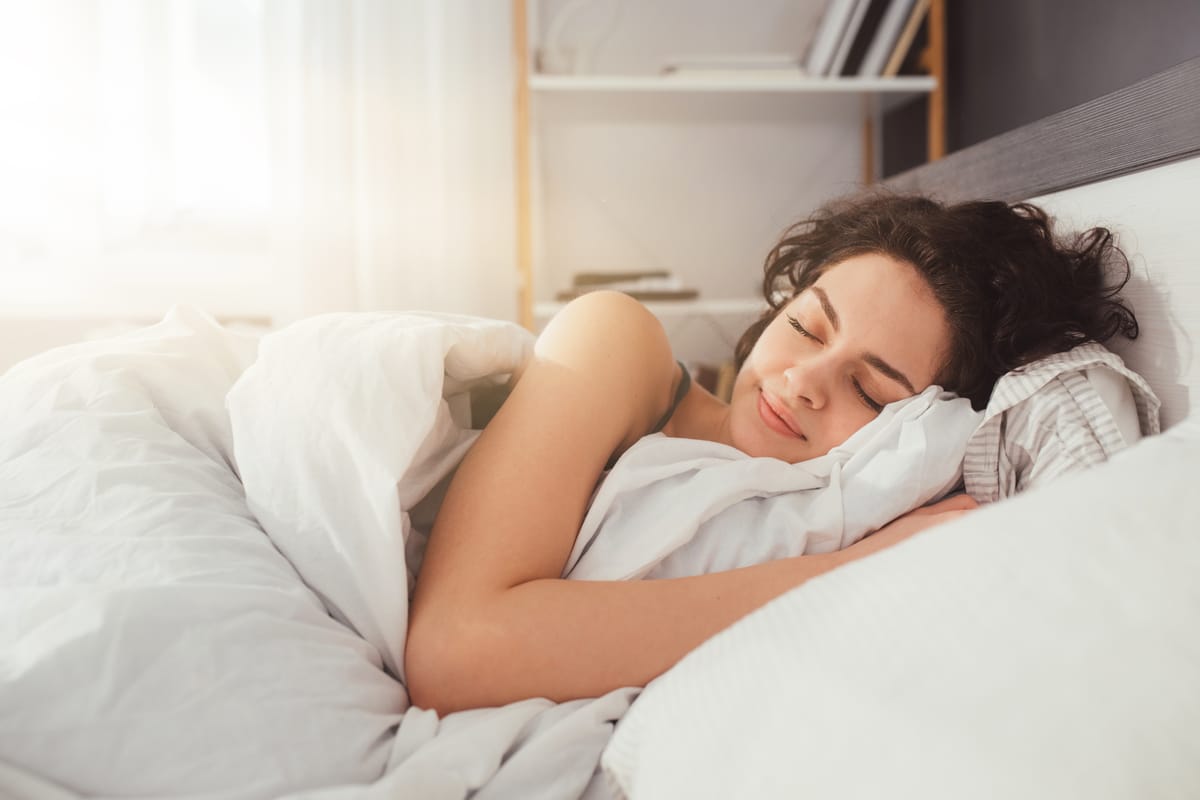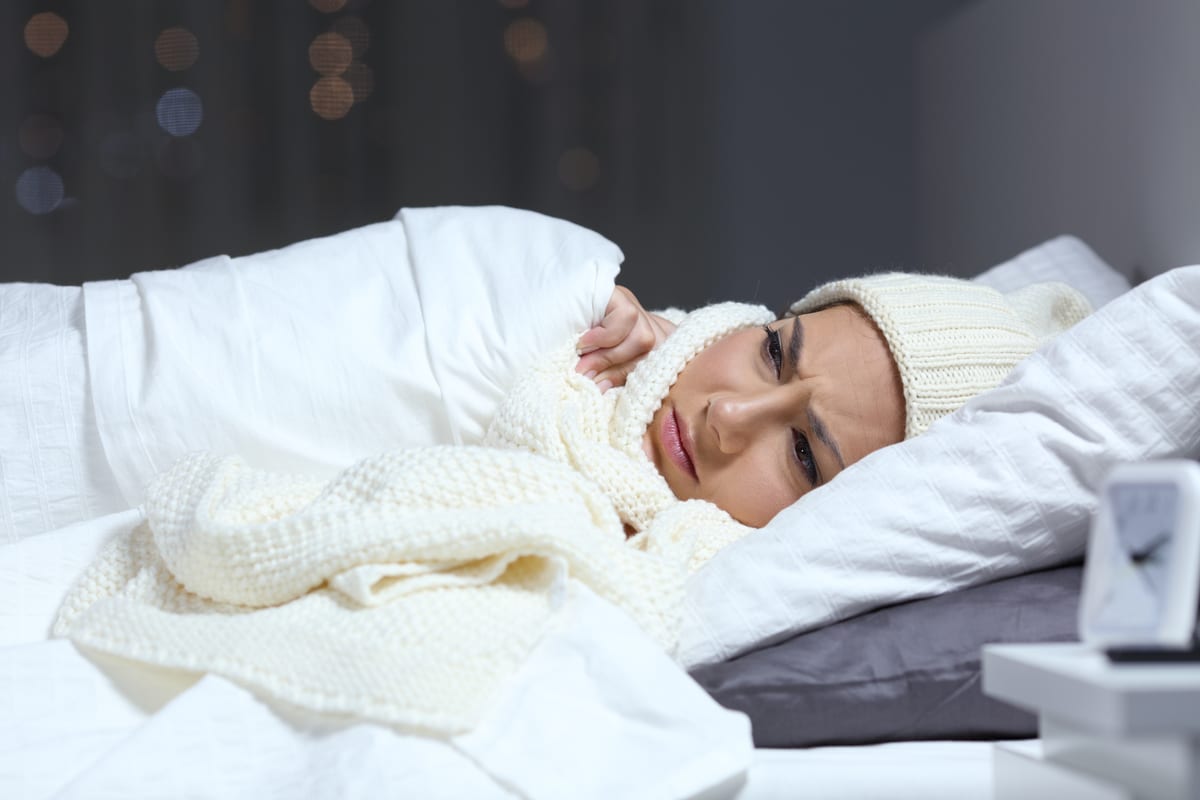
At some point in their life, most people will find themselves tossing and turning in bed, trying desperately to get to sleep but finding it increasingly difficult to doze off.
While it’s a short-lived experience for many, for others it can become a chronic condition, as a study in 2015 found when they discovered that 33% of the researched patients were suffering from insomnia.
If you’re one of the people who find it difficult to drift off, here are some steps you can take that will help you fall asleep quickly.
How To Fall Asleep Quickly
Lying in bed, unable to fall asleep, can be incredibly frustrating. So here are 14 tips to help you fall asleep quickly.
Try Meditation
Meditation can be practised in different ways, but the main goal is to relax the mind and body to gain internal peace. Meditation dates back as early as 3000 BCE, bringing several benefits and proven results as it has evolved to modern times.
Using Meditation to fall asleep quickly has worked for thousands across the globe, some saying their spirituality has improved and eternal love for oneself.
Try this quick example of Meditation:
- Lay down comfortably in a quiet space.
- Rest one hand on your abdomen, and one on your chest.
- Close your eyes and inhale slowly. Push your abdomen hand upward, not moving your chest hand.
- Exhale slowly – at your own pace, moving only your abdomen hand down.
- Repeat this process five times or until you feel calm.
Mindfulness
Mindfulness is a meditative practice that focuses solely on thoughts and feelings without judging or labelling them good or bad. First, you dive into the first steps of Meditation in a quiet space. Once your body is relaxed, follow the example below:
- Breathe normally without forcing, counting, or pacing your breath.
- Notice how your breath feels, where it’s coming from, and how fast or slow it is. No matter what your breath is doing, it’s normal, safe, and natural.
- Stay with your breath. If your mind wanders, allow it to focus on where it goes.
- Your thoughts may be racing. Some extremities may be tingly. Notice all of this without judgment.
- Accept everything happening in this present moment, and allow it to come and go as it pleases.
- Return to your breath.
You can sit in silence with mindfulness as long or short as you choose. After practice, you can choose to be mindful no matter where you are.
Visualization
Visualization can be done with or without an audio guide. Visualization acts as a fiction novel because you are in control of your own story. Visualization focuses on relaxation and decreasing tension while focusing on detailed imagery, scenes, and figures.
- Close your eyes and breathe until you reach a slowed and controlled pace.
- Imagine a scene where you are. This can be a memory, a safe place, a place you’d like to be. Wherever you choose.
- Where are you? What does the air smell and feel like? Is it hot or cold? What does the surface below you feel like? Are you inside or outside? As you breathe in, is it warm or brisk?
In visualization practice, name and feel as much detail as possible to get the most out of this practice. If you’re lucky, you’ll wake up, and it will be morning – in which the practice has worked.
Focused Breathing
Focused breathing or Meditation is the intent in which you are not thinking, feeling, or experiencing anything else except the focus point you choose. Some people like to focus their attention on candles, counting, or star-gazing.
Try this:
- Lay down and close your eyes.
- Breathe in and count to 4.
- Hold for 4 seconds.
- Exhale for 4 seconds.
- Repeat. If your mind wanders, come back to your breath and start again.
You can inhale, hold, and exhale for as long as you choose for this exercise. There is no wrong way to meditate.
Progressive Muscle Relaxation
Progressive muscle relaxation is the focus of intentionally breathing into every muscle group in your body.
For example, on each inhale, you’ll focus on one body part, such as your stomach.
While you hold your breath, you’ll tighten your abs. As you exhale, you’ll release your abdomen and move to the next muscle group.
PMR, help you notice which body parts are holding the most tension. By the end of the experience, your body should feel light and relaxed. Relaxation and decreased tension are crucial for a whole night’s rest.
Pay Attention to Your Diet
What you eat and when can have a significant impact on your sleep patterns. According to the sleep foundation, your diet plays a large role in your sleeping habits. Humans have a circadian rhythm that keeps our internal clock working.
The circadian rhythm tells our body when it’s time to sleep, eat, wake up, and drink water. When you switch your diet from low fat to high-fat content, it reprograms your body clock, irregulating sleep.
It also matters when you eat as well. Try to eat two hours before you fall asleep and add nutrients and vitamins to your diet to fall asleep faster.
Listen to Binaural Beats
Binaural beats are sounds listened to at different frequencies. For example, in one ear, you may hear sound at a frequency of 132 Hertz (Hz), and in the other ear, 121 Hz. For binaural beats to work, you must have headphones to hear the different frequencies.
If you take one ear out, you’ll only hear one frequency, in which the binaural beat will no longer work effectively. When your brain hears two different frequencies simultaneously, it perceives a third sound, which activates delta waves needed for deep sleep.
Daytime Exercise
Exercise has many benefits on the brain and body, including:
- Weight control;
- Balances mood;
- Decreases anxiety and depression;
- Better sex life;
- Boosts energy;
- Increases appetite.
Your best bet on how to fall asleep quickly is to strive for at least 30 minutes a day, five days a week. Exercise doesn’t have to be extreme, but rather a brisk walk, stretches, or anything that raises your heart rate.
Keep in mind that exercise plays a role in sleep patterns as well. If you exercise right before you sleep, chances are, you’re likely not to fall asleep right away. However, if you exercise after lunch or before dinner, you’ll likely fall asleep quickly at bedtime.
Nighttime Yoga
While it’s not such a good idea to raise your heart rate hours before you intend to sleep, nighttime yoga is a more relaxing approach. Yoga releases dopamine, serotonin, oxytocin, and endorphins needed to balance emotions and reset your mind to a calm state.
Nighttime yoga alleviates insomnia as the immune and cardiovascular systems play significant roles in falling asleep quickly and staying asleep throughout the night. Yoga pinpoints these systems in the body, which helps alleviate insomnia symptoms and stress.
Nap Less
If you tend to be a daytime napper, it may mean that you’re sleep deprived which plays a large role in your mood, how you handle stress and concentration levels. However, napping can actually be the main reason you’re not getting the sleep you need at night.
Although naps contribute to insomnia, it doesn’t mean you can’t take naps. A healthy guideline for daytime napping includes:
- Nap earlier in the day;
- Strive to nap no longer than 30 minutes;
- Wear a blackout mask or use blackout curtains for your napping schedule;
- Splash cold water on your face after waking from a nap;
- Drink a cup of caffeine before your 10 – 30 minute nap.
Try Different Bedding
If you find that you’re not falling asleep as quickly or as long as you’d like, your bedding may be the culprit. Aside from the apparent mattress issues, some people need firm mattresses, whereas others need soft ones. Figure out which you need, and strive to change it.
Also, the material you’re sleeping in plays a role in how fast you fall asleep. People tend to sweat more throughout the night, so they strive to sleep in breathable sheets made of cotton, bamboo, and linen.
Other bedding tips for a great night’s sleep include:
- Wash your bedding every 7 days;
- Choose a neck support pillow;
- Replace your pillow every few months;
- Strive for temperature focused bedding.
No Electronics
Electronics like smartphones, smart TVs, pads, tablets, or any other device project blue light from their screens, decreasing melatonin activity in your brain. Melatonin is crucial for sleeping habit’s as it’s the hormone released telling you that you’re tired.
Devices were designed to help you stay on track and be informed or active during the day. However, it harms the brain if you use it right before bedtime.
If you want to fall asleep quickly, you need to decrease the amount of time you spend in front of blue-light screens, as blue light activates the focused and alert part of the brain.
Aromatherapy
As one of our five senses, smell contributes to memory, communication, and feelings. For example, if you smell rotting garbage, your mood will likely change from content to disgust.
If you come across someone making a chicken noodle soup scent, you’ll probably be triggered back to when your grandma made you soup when you were feeling ill. You will then associate chicken soup with a positive memory, making you feel good.
Aromatherapy works in the same way. Some common relaxing scents are:
- Lavender;
- Ylang Ylang Oil;
- Chamomile;
- Bergamot;
- Peppermint;
- Valerian Oil.
These same scents help with mood balance and anxiety because they all affect the parasympathetic nervous system.
The parasympathetic nervous system communicates with your brain and tells it to release melatonin and calming hormones to essentially wind down and get to sleep quickly.
Keep a Thought Journal
Journals are used for many things, whether it’s a diary to keep your personal thoughts in or a gratitude journal to stay thankful daily. The point of a thought journal is to get out whatever is bothering you to destress and reflect on it in a logical mindset.
Often, we are so busy that our emotional mind creeps in, which is where the critical mind comes from. Overwhelming stress comes from how we talk to ourselves and how we perceive the world around us.
A thought journal interrupts the cognitive distortions and helps us unwind. If you want to get to sleep quickly, write your feelings down in a journal nightly to rid your mind of intrusive thoughts so that it doesn’t keep you awake through the night.
Vent to a Friend
Journal and thought processing doesn’t work for everyone. If writing is not your strong suit, venting to a close friend might be helpful for you.
Though not everyone may be available to you when you need to express yourself, talking aloud to yourself or to a pet may be the best option.
Drink Non-Caffeinated Tea
Non-caffeinated tea works the same way scents do. Taste and smell are both contributing factors to memory and emotions. The most calming teas to produce melatonin are:
- Valerian root;
- Chamomile;
- Ginger;
- Lemon;
- Acai;
- Peppermint;
- Cinnamon.
Do not add any sugar or sugar alternatives, which will counteract towards a relaxed state.
Escape Into Fiction
Life can get busy at the best or worst of times. Many people find comfort in escaping their reality. Find an excellent fiction-based book and dive in if this is more who you are.
Opt for a book you can hold in your hands. Electronic devices will only keep you awake and more alert.
Sleep Enhancements
Sleep supplements work by activating the melatonin in your body to help your system wind down naturally. The most common contributor to sleep aids is melatonin pills. However, some people find they experience adverse effects. If this is the case, you can also try:
- GABA;
- Valerian;
- CBD Oil;
- Glycine;
- 5-HTP;
- Passionflower.
These supplements work the same way non-caffeinated tea does by producing a relaxed state which will enhance sleep productivity.
An hour after you take your supplements, go to your bed, use your blackout curtains, and watch as time escapes you into a full night’s rest.
Warm/Hot Bath
Warm baths or hot showers 90 minutes before bed helps to get you to fall asleep quickly due to many reasons:
- Hot water changes core temperature, which means you go to sleep cooler;
- Touches nerve endings that aren’t touched regularly, activating the relaxation;
- Warmer temperatures bring less oxygen to the brain caused by slower heart rate, which induces tiredness;
- Stimulates blood flow which allows body heat to escape quicker.
Create a Bedtime Routine and Stick to It
As people, we like routine, structure, and stability. Like clockwork, we get up at a specific time, go to work, and on cue have all these things we do daily.
Let’s say we took time away entirely after doing the same thing every day for one year. Depending on the light in the day, your mind will interpret little triggers that activate the routine you have done.
So, creating a bedtime routine will help your mind wind down. If you keep at it every day, you’ll fall asleep quicker than you ever have.
The Bottom Line
If you swear up and down that you have tried everything, rest assured, you haven’t. While one thing has worked for you, others don’t; try combining the methods above. If one method doesn’t work, change it until you find the right fit.
There is a light at the end of the tunnel. A common pitfall you may run into are, redirecting your habits to your previous methods, such as using electronics, not eating healthily, or decreasing your exercise.
To fall asleep quickly, you must activate the calming hormones in your brain, which takes time and patience. If you’re determined, the time will come that insomnia will be a thing of the past.


